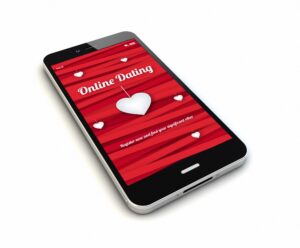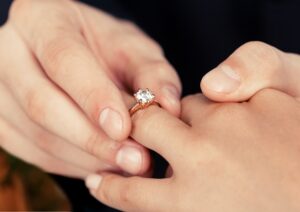The landscape of dating has transformed significantly across generations. Baby Boomers and Millennials have unique experiences and challenges when it comes to searching for love. Understanding these differences can provide insight into the evolving nature of romantic relationships.
1. Technology and Online Dating
Millennials have grown up with technology and often rely on dating apps to meet potential partners. Platforms like Tinder, Bumble, and Hinge are integral to their dating lives, providing convenience and a wide pool of options. In contrast, Baby Boomers are less likely to use these apps, often preferring traditional methods of meeting through friends, family, or social events. This generational divide in using technology significantly influences how each group approaches dating.
2. Communication Styles
Communication preferences between Baby Boomers and Millennials differ notably. Millennials tend to favor texting, social media, and instant messaging to keep in touch with potential partners. Baby Boomers, however, often prefer phone calls or face-to-face interactions, valuing more direct and personal communication. These differing preferences can lead to misunderstandings or frustrations when expectations about communication aren’t aligned.
3. Attitudes Toward Commitment
Millennials often approach relationships cautiously and may delay commitment due to career goals, financial instability, or the desire for personal growth. This generation is more likely to experience long periods of casual dating before settling down. On the other hand, Baby Boomers typically prioritized early marriage and family life, influenced by societal norms of their youth. These contrasting attitudes shape how each generation navigates their search for love.
4. Impact of Past Relationships
Past relationships play a significant role in how both generations view dating. Baby Boomers might be re-entering the dating scene after divorce or losing a spouse, carrying different emotional baggage and expectations. Millennials, often still in their first serious relationships, may have less experience but higher expectations shaped by media and societal ideals. This difference affects their openness and approach to new relationships.
5. Influence of Social Media
Social media’s role in dating is starkly different for Millennials and Baby Boomers. Millennials often use platforms like Instagram and Facebook to showcase their lives and gauge potential partners’ interests and compatibility. Baby Boomers may use social media less frequently, preferring more private and direct means of getting to know someone. This generational gap impacts how each group builds and maintains romantic connections.
6. Financial Considerations
Financial stability plays a crucial role in dating for both generations but in different ways. Millennials often face significant student debt and high living costs, which can delay marriage and home-buying plans. Generally more financially stable, Baby Boomers may focus on finding partners with similar retirement plans or lifestyles. These financial factors influence the expectations and priorities in their dating lives.
7. Social Expectations and Pressures
Societal expectations have evolved, impacting how Baby Boomers and Millennials view relationships. Millennials often face less pressure to marry young and more freedom to explore various relationship models, including cohabitation and non-traditional partnerships. Baby Boomers grew up with more rigid expectations around marriage and family roles, which can influence their current dating behaviors. These differing pressures shape the relationship dynamics for each generation.
8. Approach to Dating Etiquette
Dating etiquette varies significantly between Baby Boomers and Millennials. Millennials might prioritize casual and flexible dating experiences, often meeting in informal settings like coffee shops or bars. Baby Boomers may value more formal dating practices, such as planned dinners and thoughtful gestures. Understanding these etiquette differences can help bridge the generational gap in dating expectations.
9. Navigating Dating After Loss
Dating after the loss of a partner is a common scenario for Baby Boomers, presenting unique challenges and emotional complexities. This experience often requires significant adjustment and a different approach to finding love again. Millennials, less likely to have faced such profound loss, might struggle to empathize with these challenges. Recognizing this difference is crucial for understanding each generation’s distinct emotional landscapes in their search for love.
10. Emphasis on Personal Growth
Personal growth and self-discovery significantly influence how Millennials and Baby Boomers approach relationships. Millennials often view dating as an extension of their journey toward self-fulfillment, prioritizing personal development alongside romantic pursuits. Having already established their identities and careers, Baby Boomers may seek partners who complement their existing lifestyle and values. This emphasis on personal growth shapes the motivations and expectations in their search for love.
How Each Generation Is Searching for Love Is Different
Ultimately, the ways Baby Boomers and Millennials search for love are shaped by technological advancements, communication preferences, and evolving social norms. Understanding these differences can foster better empathy and connection across generations.
Read More:
Keep Love Alive: 8 Things to Never Say to Your Spouse
Special Things You Can Do for Your Spouse During a Difficult Time
Catherine is a tech-savvy writer who has focused on the personal finance space for more than eight years. She has a Bachelor’s in Information Technology and enjoys showcasing how tech can simplify everyday personal finance tasks like budgeting, spending tracking, and planning for the future. Additionally, she’s explored the ins and outs of the world of side hustles and loves to share what she’s learned along the way. When she’s not working, you can find her relaxing at home in the Pacific Northwest with her two cats or enjoying a cup of coffee at her neighborhood cafe.
















